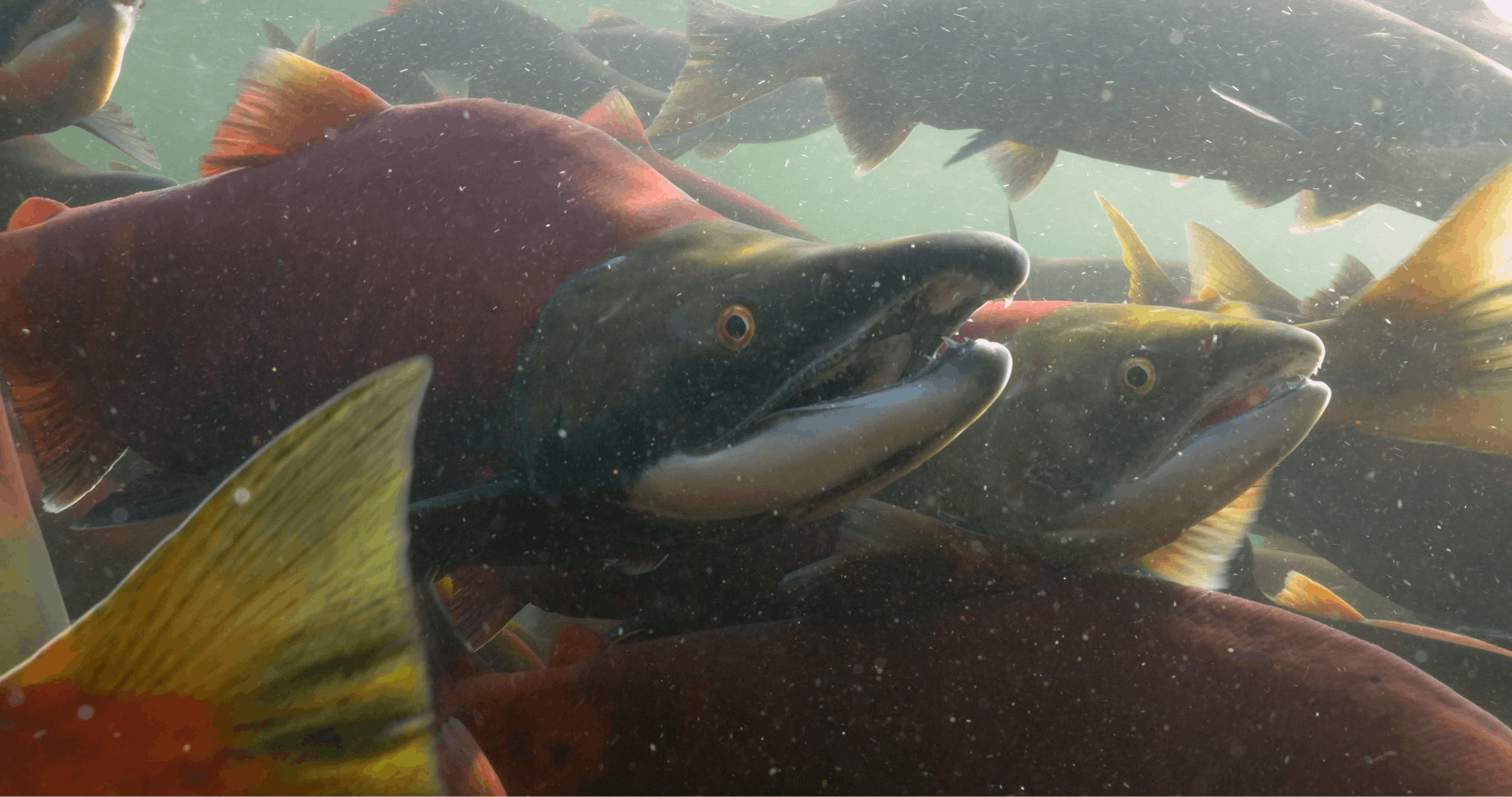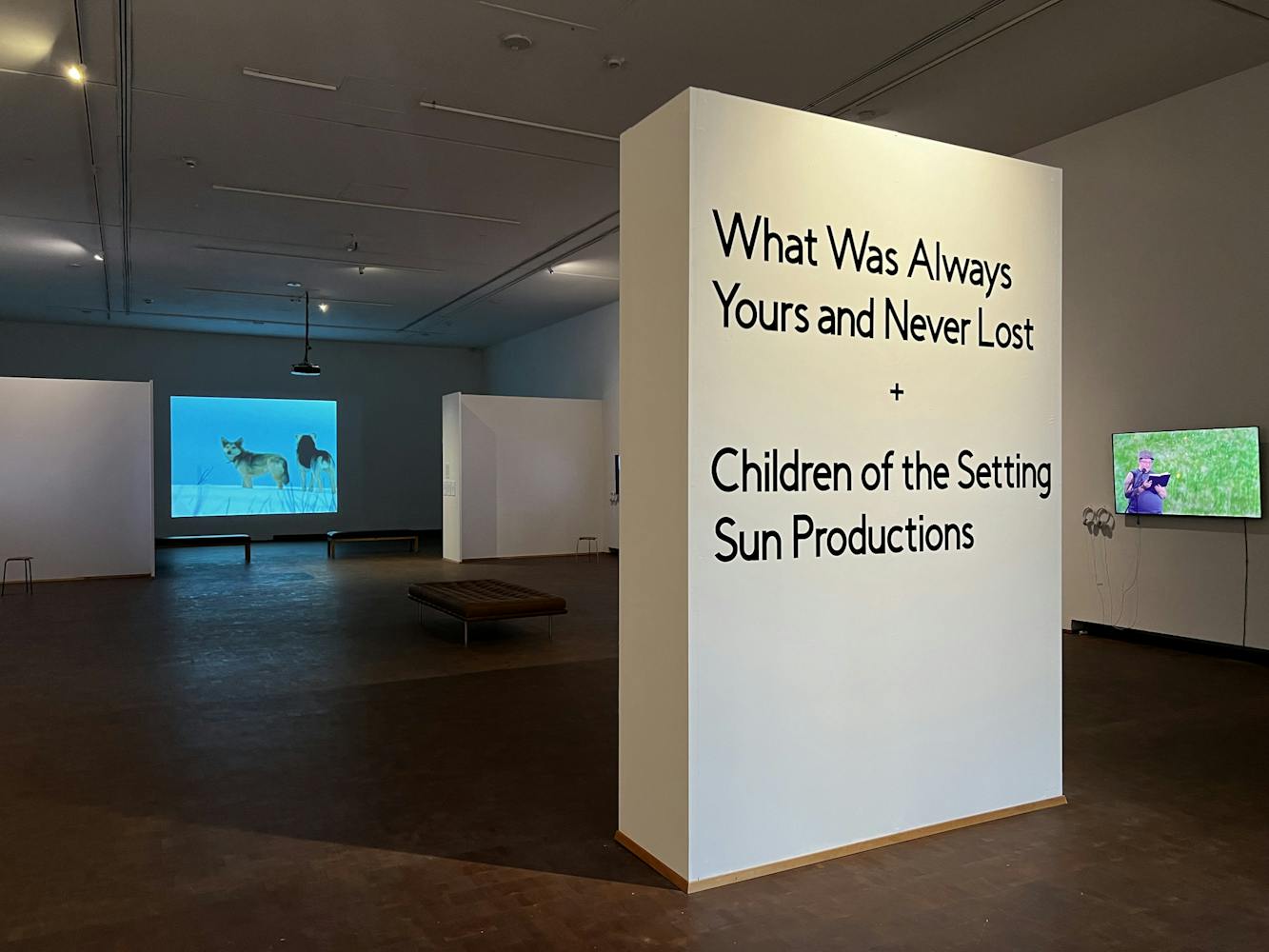This winter, Western Washington University's Western Gallery presents two separate but related exhibitions, “What Was Always Yours and Never Lost with Children of the Setting Sun Productions.”
Indigenous filmmakers from Bellingham and other parts of North America share the gallery space to examine their history, advocacy and express their identities. One exhibition has documentaries from the Lummi Nation and the other is nine experimental films from seven Native filmmakers.
All of the art in these collections has one thing in common: a shared medium of film. Each piece is displayed on TVs connected to either headphones or projectors, the sound of which echoes throughout the gallery.
The exhibition “What Was Yours and Never Lost,” was curated by Sky Hopinka, an author and filmmaker who is a descendant of the Ho-Chunk Nation and Pechanga Band of the Luiseño people (California). This collection centers on Indigenous filmmakers of different backgrounds exploring their Indigeneity and individuality through experimental cinema.
The documentaries by Children of the Setting Sun Productions utilize Native storytelling to explore the activism, culture and history of the Lummi Nation, as well as other tribes. They are a part of the Salmon People Stories, a collection of films that highlight the Native communities’ activism and their relationship with salmon and the environment.
“Through storytelling, we will speak to the core issues at the heart of salmon decline: a disconnect, and therefore a disrespect for Mother Earth, fellow human beings and ourselves,” Children of the Setting Sun wrote on their website regarding the Salmon People Project. “We will build awareness of how this disconnect has led to broken treaty promises and a devastating loss to Native Americans.”
Zoë Fejeran, Western Gallery’s museum educator, spoke about the importance of Indigenous folks sharing their own stories through these collections and her goal to establish an open line of communication with the Indigenous community on campus.
“Museums and galleries have historically had really harmful relationships and histories with Native and Indigenous communities,” Fejeran said. “If we want to relate to our communities, if we want to relate to the people that are on our campus, in our neighborhoods or in our towns, then we need to keep doing stuff like this.”
The exhibition's opening reception, which was initially slated for Jan. 18, was canceled due to snowfall. The reception was rescheduled to Thursday, Feb. 1 at 5 p.m. at the Western Gallery with the addition of featured speaker, Noelani Kanuha Auguston. She is a writer and producer from Children of the Setting Sun Productions and will be unveiling their latest work, a TV drama titled “The Sound,” which follows Indigenous Coast Salish teens on a canoe journey of self-discovery.
“It has been tricky, it feels like we've already lost a month,” Fejeran said about the delays. “We're really looking forward to posting a public reception so that we can hear from more folks.”
To better connect visitors and receive immediate feedback, the gallery has installed a “Share Your Thoughts” section near the entrance. Anyone may leave a note to share their thoughts and cultivate discussion.
Victoria Embers, a third-year Western student majoring in journalism, has been working at the Western Gallery since fall quarter. She was impressed by both the current exhibitions and the previous exhibition by Jyoti Duwadi.
“I feel like art is a very important part of society and everyday life, mental health and to have this space,” Embers said. “It’s good for students to just get out of the classroom environment and be able to come in here.”
Alongside the exhibitions, the gallery offers upcoming complementary artist talks for attendees to further immerse themselves in the arts.
Hopinka will be giving an artist talk on Feb. 22 at 5 p.m. in Miller Hall 152 and Western Assistant Professor of English José Roach Orduña will be the featured guest at the Western Gallery on March 7.
The Western Gallery offers free admission and a place for students to develop a greater understanding of the community and the world around them.
For updates on the Western Gallery, check out their Instagram.
View “What Was Always Yours and Never Lost with Children of the Setting Sun Productions” at the Western Gallery from 10 a.m. to 4 p.m. Monday through Friday, and noon to 4 p.m. on Saturday until March 22. Entry is free and open to the public. Info: westerngallery.wwu.edu.
Ayden Sweat (he/him) is a campus news reporter for The Front this quarter. He is a third-year student and a Visual Journalism pre-major with an interest in photojournalism and layout design. In his free time, he frequents the outdoors, hosts a radio show at KUGS-FM, and collects a variety of physical media. Ayden can be reached at aydensweat.thefront@gmail.com.








